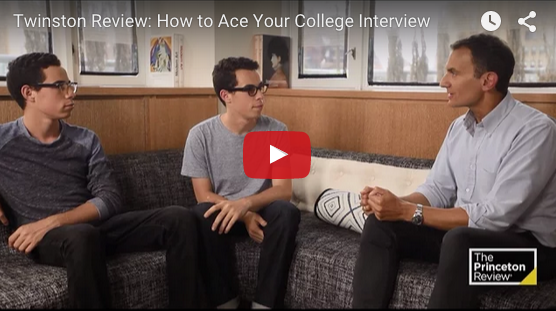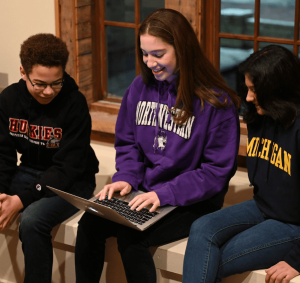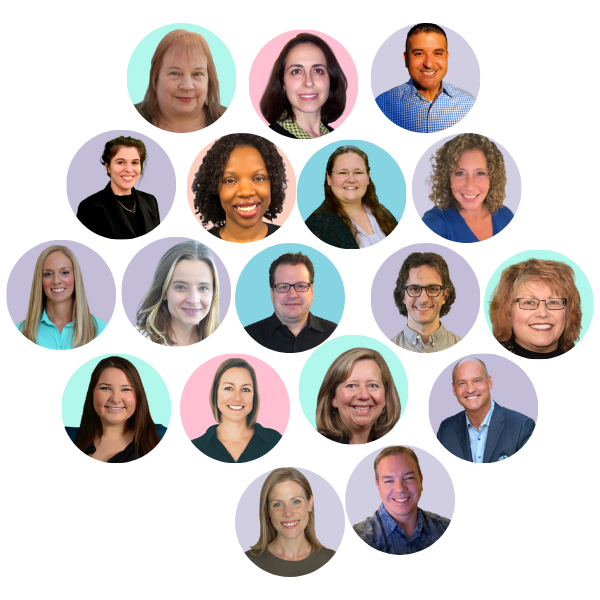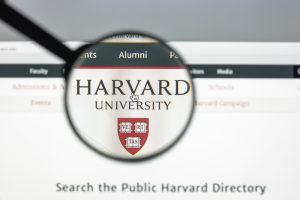Students pour over their college applications every year, but who actually reads them? You’ve likely heard terms like “college admissions officer,” “college admissions committee,” and “ admissions reader ” thrown around. But what do these terms actually mean? And how does the admissions process work?
In this article, we will discuss the roles of college admissions officers, admissions committees, and admissions readers. We will also examine questions such as: How long does it take admissions to review an application? What do colleges look for in applicants? And how many admissions officers are there?

Complimentary Initial Consultation
Fill out this form to book your complimentary initial consultation..
Tell us your name.
What is a college admissions officer?
To start, what is a college admissions officer, and what do they do?
A college admissions officer is responsible for reviewing college applications within a specific region. Depending on the school, an admissions reader might review your application before passing it along to your admissions officer. Colleges know that each high school is unique and has different opportunities and standards. Therefore, in an effort to be fair, college admissions officers are assigned a specific region. Eventually, these officers become experts on the high schools within this region.
High schools also submit school profiles along with students’ college applications. These profiles describe the courses and opportunities available to students. College admissions officers, admissions committees, and admissions readers consider each student’s application within the context of their high school’s profile. College admissions officers, however, are often most familiar with the specific high schools in question.
It’s important to realize that the college admissions officer reviewing your application is determined by where you live. If a college representative has visited your high school, it is most likely your college admissions officer. After all, the best way for college admissions officers to familiarize themselves with a high school is by visiting. This is why you should introduce yourself to them if the opportunity arises.
What do admissions officers look for in an applicant?
So, what do admissions officers do, specifically?
In addition to reviewing your transcripts, test scores, activities, strong personal statement , supplemental essays, and recommendations, college admissions officers summarize your application and present their summary and impressions to a larger college admissions committee.
Of course, not every college has an official admissions committee. Generally, though, the more selective the school, the more thorough and formal the admissions process. That said, if you are interested in learning how to get into an Ivy League , you should familiarize yourself with the college admissions committee review process .
It’s also important to keep in mind that college admissions officers look at your social media accounts . After all, admissions officers want to gain a holistic understanding of each applicant, and for better or for worse, students’ internet personas are very telling of their interests and values. So make sure your social media presence is appropriate and presentable!
How long do admissions officers read applications?
You’re probably wondering how much time admissions officers spend on each application. On average, college admissions officers review several applications within an hour. That said, if your application makes it through the first round of consideration, an admissions officer will spend much more time with your application. Suppose an admissions officer or admissions reader is not sure whether or not your application is a good fit for the college. In that case, they will seek out a second, or sometimes even a third, opinion before bringing an application to the admissions committee.
What is a college admissions committee?
Each college approaches the admissions process differently. That said, there is a lot of overlap, especially when it comes to highly-selective schools, such as Ivy League institutions . Generally speaking, the more selective the school, the more likely it will be to have an official college admissions committee and a formal review. But what actually happens during the college admissions committee review , and what do colleges look for in an applicant?

What colleges look for in applicants, in part, depends on the school’s specific values. Similarly to how a school can be a good fit for your needs, schools have certain criteria they look for in applicants. Generally, the best way for college admissions readers and officers to get to know a student is through their college essays. This is why it’s crucial to put your best foot forward in your essay. Tweet
How do colleges decide who gets in?
In order to be seriously considered for admission, a student has to be a good academic fit. This means that their high school GPA, history of course rigor , and test scores (if submitted) are up to the college’s standards. Even though many colleges adhere to holistic college admissions standards , if a student does not meet the school’s qualifying GPA and test scores, their applications will quickly be sorted out.
If your application makes it past the first round of considerations, your application may be passed on to another reader or be reviewed by a committee. At this stage in the admissions process, your college essays , list of activities, and letters of recommendation will become the focus.
Each college is different, so you probably won’t know for sure who reviewed your application specifically. Rest assured; however, admissions readers, admissions officers, and admissions committees are all professionals who take each application seriously.
There are many factors that admissions officers look for in an applicant . Still, generally, they are looking for academically capable, passionate students who are intent on making a difference and being involved in their communities. This is why preparing thoughtful, personal statements and supplemental essays is essential. College letters of recommendation are another valued aspect of your college application because they convey how others perceive you and what you’re like in the classroom.

Meet with our college admissions experts
Key takeaways and moving forward.
How colleges decide who gets in depends on several factors, including extracurricular activities, high school GPA, standardized test scores, volunteer hours , college essays, and letters of recommendation. Colleges look carefully at every aspect of your application. So if you’re wondering, do colleges read letters of recommendation? The answer is yes. Likewise, they also review each of your college essays, in addition to all of the other sections of your application. That said, approach each aspect of your college applications with care. If you need help staying organized during the college application process or developing an application strategy, you may want to consider hiring a college counselor . Here at Prepory, we have the resources and expertise to help you achieve all of your college-related goals. So if you have questions about how colleges decide who to accept or how colleges read applications, reach out to learn more about our services .
- March 28, 2023
- 12th Grade , College Admissions
Who Is Actually Reading Your College Applications and Essays?
Contact a Prepory college admissions coach and start your college admissions journey.
Our college admissions experts are here to guide you from where you are to where you should be. Through our comprehensive curriculum, individualized coaching, and online workshops, you are set for success as soon as you connect with us.
During our initial consultation, we will:
- Assess your student’s applicant profile and higher education goals
- Provide detailed information about our services and programming
- Share tips on how to navigate the U.S. college admissions process
Let's get started!
Land your next great job with a Prepory career coach!
Let us help you advance your career, Identify new opportunities, participate in mock interviews, build, thrive, grow, and land your dream job.
Subscribe to our blog!
Follow us on social media
Want to get admitted to your dream school or accelerate your career?
College Admissions
Career coaching.
(929) 244-3365 [email protected] 12555 Orange Drive, Suite 100A, Davie, FL 33330

Copyright © 2023 Prepory Coaching Group LLC. All Rights Reserved.

Ready to take the next step towards college admissions or career success?
Book your free consultation.
Nice to meet you! What's your email?
And your phone number?
Please select a consultation time.
This site uses various technologies, as described in our Privacy Policy, for personalization, measuring website use/performance, and targeted advertising, which may include storing and sharing information about your site visit with third parties. By continuing to use this website you consent to our Privacy Policy and Terms of Use .
COVID-19 Update: To help students through this crisis, The Princeton Review will continue our "Enroll with Confidence" refund policies. For full details, please click here.
Enter your email to unlock an extra $25 off an SAT or ACT program!
By submitting my email address. i certify that i am 13 years of age or older, agree to recieve marketing email messages from the princeton review, and agree to terms of use., top college interview tips.
Many colleges encourage you to interview with an admissions representative or alumnus as part of the college application process , either on campus or in your hometown. Admissions officers will consider the interview when evaluating your application (although they'll be much more interested in your grades , test scores , and college essays ). A few schools require interviews or have a specific process for them.
In most cases, the interview will not make or break you, but if you do arrange an interview, take it seriously. It’s a chance to show off the unique personality traits you can bring to campus, and build a personal relationship with the admissions gatekeepers. Our college interview tips will help you get prepped for the big day.

1. Bring specific questions.
Your interviewer will expect you to ask some questions about the school and talk about why you want to go there. Put some energy into coming up with creative questions with answers that cannot be easily found on the college's website
2. Practice like a prizefighter.
Being interviewed is a skill, and it requires practice. Sit down with one of your parents, a teacher, a college counselor , or a friend and have him or her ask you their best college interview questions. Answer them honestly and seriously. Then ask your "interviewer" how you came across. You'll also get better after each college interview, so try to arrange your schedule so that your last interviews are with the schools you care about most.
3. Prepare for common college interview questions.
Interviewers tend to ask about the same topics. If you’re prepared to answer the following interview questions, you’ll be golden.
- Why do you want to attend this college/university? (Hint: Specific examples are always key! Your interviewer wants you to be as excited as they were–and are!—about their college).
- What’s your favorite subject in high school?
- What do you want to study in college?
- What do you enjoy doing when you’re not in class?
- What are three interesting things about you that I wouldn’t know from your application?
- What’s an example of an obstacle, a failure, or a mistake that you learned from?
Read More: Do Colleges Check Out Applicants on Social Media?
4. Be yourself…
Remember, the key to getting admitted (and being happy at college) is finding your best fit school . You want to be yourself so that the person interviewing you can discern what you would add to the campus community. Before your interview, think about why the school appeals to you, what you want to study, and what you might do after graduation.
5. …but be your best self.
You have many sides, so showcase the side of yourself that is professional, mature and poised. Don't show up looking like you just peeled yourself off the couch—wear what makes you feel comfortable and and confident. Smile, and remember your interviewer wants the interview to go well too!
6. Stop worrying about the clock.
Most interviews run approximately 30 minutes to an hour. Students are sometimes told that the sign of a good interview is a long one. But on-campus interviews are usually scheduled back-to-back, and off-campus interviews are usually performed by alumni who are working professionals—so your interviewer is likely on a tight schedule. If you notice them checking the time, it's not (necessarily) because they think you're boring.
7. Be thankful.
Send a thank-you note. If there's something about the interview that was helpful to you, let your interviewer know. If you connected with your interviewer over a book, common experience, or a band you’re both into, then mention it!
Otherwise, simply express your continued interest in the school and thank your interviewer for taking the time to meet with you. (Read our advice on e-mail etiquette before you hit send).
Check out our video on how to ace the college interview:

24-hour College Essay Review
Get a quick and comprehensive review of your college essay. Our experts know how to bring out the best in your writing, and will provide you with the feedback you need to produce a stand out essay.

Explore Colleges For You
Connect with our featured colleges to find schools that both match your interests and are looking for students like you.

Career Quiz
Take our short quiz to learn which is the right career for you.

Get Started on Athletic Scholarships & Recruiting!
Join athletes who were discovered, recruited & often received scholarships after connecting with NCSA's 42,000 strong network of coaches.

Best 389 Colleges
165,000 students rate everything from their professors to their campus social scene.
SAT Prep Courses
1400+ course, act prep courses, free sat practice test & events, 1-800-2review, free digital sat prep try our self-paced plus program - for free, get a 14 day trial.

Free MCAT Practice Test
I already know my score.

MCAT Self-Paced 14-Day Free Trial

Enrollment Advisor
1-800-2REVIEW (800-273-8439) ext. 1
1-877-LEARN-30
Mon-Fri 9AM-10PM ET
Sat-Sun 9AM-8PM ET
Student Support
1-800-2REVIEW (800-273-8439) ext. 2
Mon-Fri 9AM-9PM ET
Sat-Sun 8:30AM-5PM ET
Partnerships
- Teach or Tutor for Us
College Readiness
International
Advertising
Affiliate/Other
- Enrollment Terms & Conditions
- Accessibility
- Cigna Medical Transparency in Coverage
Register Book
Local Offices: Mon-Fri 9AM-6PM
- SAT Subject Tests
Academic Subjects
- Social Studies
Find the Right College
- College Rankings
- College Advice
- Applying to College
- Financial Aid
School & District Partnerships
- Professional Development
- Advice Articles
- Private Tutoring
- Mobile Apps
- International Offices
- Work for Us
- Affiliate Program
- Partner with Us
- Advertise with Us
- International Partnerships
- Our Guarantees
- Accessibility – Canada
Privacy Policy | CA Privacy Notice | Do Not Sell or Share My Personal Information | Your Opt-Out Rights | Terms of Use | Site Map
©2024 TPR Education IP Holdings, LLC. All Rights Reserved. The Princeton Review is not affiliated with Princeton University
TPR Education, LLC (doing business as “The Princeton Review”) is controlled by Primavera Holdings Limited, a firm owned by Chinese nationals with a principal place of business in Hong Kong, China.
College Interviews: The Basics
Find the right college for you.
Are college interviews important? In many cases, the answer is “yes.” The college interview is a part of the college application process at many colleges─but not at all of them. You may meet in person to talk with someone from the admissions office, a current student, or an alum of the college. Or you may be able to take part in a video interview.
The interview is rarely the deciding factor in whether the college will accept you, but it can give a representative from the college a chance to get to know you better. And the interview gives you a chance to:
- Show your interest in the college.
- Share information about yourself beyond what's listed on your transcript or in your application.
- Bring up anything in your record that you'd like to explain, like a temporary drop in your grades.
- Discuss your goals and the reasons you want to attend that college.
- Ask questions about the college.
What to Do Before an Interview
Being prepared will help you stay calm and confident. It's also important to be honest about who you are and what you've done. You'll be more convincing and appealing if you stick to what's real.
- Make an interview appointment with one of the colleges you want to attend.
- Mark the date and time on your calendar.
- Research the college by checking out its website, brochure, and course catalog.
- Make notes about why you want to attend this college.
- Make notes about your academic background and high school experiences.
- Make notes about your life outside the classroom, including activities, community service, and hobbies.
- Get familiar with common interview questions. Do practice interviews with a friend or family member. Take turns being the interviewee and the interviewer.
- Prepare questions about the school to ask the interviewer.
- Get directions to the interview.
- Choose appropriate clothes to wear for the interview.
- Gather documents you might need, such as test scores and a high school transcript.
What to Do at and After an Interview
- Dress nicely and professionally to leave a good impression.
- Arrive early. Be prepared with everything you need for the interview, including a way to take notes and a list of questions to ask.
- Be polite. Be positive and attentive throughout the interview.
- Avoid using slang or other inappropriate language during the interview. This can leave a negative impression.
- Display confidence but not arrogance.
- When you’re responding to questions, answer honestly. Ask for clarification if you’re unsure what the interviewer is asking.
- Send a thank-you note to your interviewer after the interview.
What questions should I prepare for in a college interview?
You should be prepared to answer college interview questions about your background, academic interests, extracurricular activities, and your reasons for wanting to attend the college. Additionally, expect college-specific questions about your interest in the school and what you can contribute to the campus community. You’ll want to research the college and its programs, reflect on your experiences and goals, and practice articulating your thoughts and experiences. You should also be prepared to ask the interviewer about their experience at the college. They’ll have valuable insight on what you can expect.
What does a college interview consist of?
A college interview is an official dialogue between a college admissions representative and a potential student. The main objective of the interviewer is to gain additional insight about the student and evaluate their compatibility with the institution. Although interviews aren’t required by all colleges, they can be a chance for the student to showcase their character, hobbies, and aspirations.
What questions are asked in a college interview?
Before a college interview, get ready to answer questions the interviewer may ask to get to know you better and evaluate you as a potential student. These questions may have to do with your strengths and weaknesses, background, academic interests, extracurricular activities, and reasons for wanting to attend college.
Are college interviews a big deal?
Although interviews can be a valuable way for students to showcase their qualities, interests, and suitability for the college, not all colleges require them or weigh them heavily in their evaluation process. Some colleges view interviews as optional or supplementary, and others consider them essential. Although college interviews can be mandatory in a few cases, they’re usually regarded as one component of the larger admissions process (e.g., academic performance, extracurricular involvement, essays, and test scores).
How do I schedule a college interview?
If you're looking to schedule a college interview, start by checking the college's website or admissions portal for instructions. Colleges may offer interviews as part of their application process and will automatically schedule them for eligible applicants. In other cases, you may need to express interest in an interview or request one through the college's admissions office. Keep an eye out for any deadlines or guidelines regarding interview scheduling to ensure you have the chance to meet with a representative.
What should you include in a college interview thank-you email?
When writing a thank-you note after a college interview, you’ll want to convey your appreciation for the chance to interview and reaffirm your enthusiasm for the college. Personalize the thank-you note by mentioning something discussed during the interview. You’ll want to make sure the tone is professional, brief, and authentic.
Related Articles
College Planning
How to Prepare for Your College Interview
College Board
- September 24, 2021
There are many different aspects of the college application process. This post is going to cover one important part of applying to higher education schools, the college interview.
What is a college interview?
A college interview is an opportunity for you to meet with a representative of the school you are applying to. These individuals are often someone from the admissions office, a current student or an alumnus of the school.
Why is a college interview important?
While interviews are not required to attend every school, you can use them to your advantage. Some of the ways that these interviews can help with your application include:
- Showing your personality beyond your transcript, essay, and the rest of your application
- Find out more about the college from someone on a personal level, while sharing your goals and potential reasons why you want to attend the school
- Address any questions that a school might have, such as a drop in grades in a semester
- Ask questions you have about the school that you cannot get from the school website or other promotional materials
How to Prepare for the Interview
The first step for preparing for the interview is to find out if the school requires an interview, if it is optional, or not offered. If you are required or want to have an interview with the school, look at the school’s website or contact their college admissions office to learn the next steps. If you are traveling to the campus, consider scheduling a campus tour while there.
Once the interview is scheduled, start preparing for the interview by researching the college. When researching the school, develop talking points on why the school could be a good fit and what excites you the most about potentially attending.
Things to do before your interview
- Once the interview is scheduled, mark the day and time into your calendar.
- Visit the college’s website and other promotional materials such as mail or social media .
- Write down reasons why you would be excited to attend this school.
- Create a list of talking points about your academic background and other high school experiences.
- Create a list of talking points about your life outside of school including hobbies and volunteer work and any specific family responsibilities that supply life skills.
- Using some of the common practice interview questions listed below, conduct some practice interviews with a friend or family member. It is a good idea to take turns practicing as the interviewer as well as the interviewee.
Other Preinterview Tips
- Dress nicely to the interview and avoid wearing casual clothing such as jeans or shirts.
- Arrive early.
- Be polite and confident but not arrogant.
Post Interview Tips
- Answer questions honestly.
- Send a thank-you note to the interviewer after the interview.
Practice Questions and Answers for Your College Interview
Here are some types of questions you may encounter and tips for answering them.
Questions about your fit with a college
Interviewers may ask questions like these:
- Why do you want to attend our college?
- Why they ask: They want to know that you're really interested in their college. They also want to know what you can bring to the campus.
Your strategy for college-fit questions
Talk about what you've learned about the college and why you feel it's the right place for you. (Remember that you have to research a college ahead of time to answer this type of question well.) Discuss your extracurricular activities and achievements that show your character.
Questions about your personality
- What three adjectives best describe you?
- What are your strengths and weaknesses?
- Why they ask: They want to see that you can think and speak about yourself.
Your strategy for personality questions
Give examples of how your chosen adjectives describe you. Talk about how you've used your strengths to accomplish something. Talk about how you overcome your weaknesses. For example, you can say, "I have a hard time learning new languages, so I set aside more time to study them."
Questions about activities, interests, and goals
- What activities do you find most rewarding?
- What is your favorite book?
- Why they ask: They want to get to know you better and learn about what's important to you.
Your strategy for questions about interests
Think about the why: Why are those activities the most rewarding? Why is a book your favorite? If you have a major in mind, talk about why you're interested in that subject. Discuss how you think college can help you meet your goals. Be sincere and honest in your answer — don't say things just to impress the interviewer.
Wide-ranging (broader) questions
Interviewers may ask some broader questions. For example:
- If you had a thousand dollars to give away, what would you do with it?
- What's your opinion on the immigration debate [or another topic in the news]?
- Why they ask: They want to see that you are informed and curious and a careful thinker.
Your strategy for broader questions
Stay up-to-date on news and current events. Do you have strong opinions on certain issues? Can you explain your position? Try to spell out your system of values to yourself and think about how you apply it.
More college interview tips
- Have a conversation. Don't try to memorize a script.
- Ask questions. Do express your interest in the college.
- Be yourself. Don't try to answer questions based on what you think the interviewer wants to hear.
- Prepare. Do practice interviews with friends or family. Take turns asking questions.
Visit BigFuture ™ for more free, comprehensive college planning resources.
Related Posts
Advanced Placement
Introducing the AP Alumni Network
What is a stem major.

- 630 730 8825
College Admissions Interviews: The Ultimate Guide
- Written by The Hello College Team
- Last Updated on June 9, 2022
Whether it be in-person or online, the college admissions interview is perhaps the most nerve-wracking aspect of the college application process. But, just because an interview is looming doesn’t mean you need to panic!
The best cure for admissions interview jitters is proper preparation. With that in mind, here is your ultimate guide to college admissions interviews!
Why Do Colleges Give Interviews?
The first question you may ask yourself when invited to an interview is, Why? If your transcripts and test scores meet the standard, then why do you need to go further than that? That’s a valid question – one without a simple answer.
Not all colleges give or require admissions interviews, but those that do typically do so to help sift through candidates who may be very similar in academic achievement. When you only have ten spots left, and all ten applicants are comparable academically, you need to have another way to determine who to admit into your university.

Your College Admissions Journey, Mapped Out!
Introducing our college planning timeline with a handy checklist of essential tasks, a step-by-step guide for every grade level, from freshman to senior year, AND financial aid, college applications, extracurricular activities, and more.
How Do Interviews Help College Admissions Representatives Make Decisions?
Interviews can help colleges glean information that isn’t readily available in your transcripts or test scores.
There are several kinds of College Admissions Interviews, and they all serve different purposes.
- Admissions Officer Interview : During these evaluative interviews, admissions staff or highly trained students ask several questions to determine whether you are a good fit for the school. This is the most serious kind of interview because the admissions officer has a high degree of influence over whether to admit you.
- Alumni Interview : Alumni may conduct a formal or informal interview then provide feedback to the admissions office. Prospective students are evaluated on a form describing their impressions of the candidate. The interview gives the applicant an opportunity to highlight their extracurricular activities and their academic strengths.
- Current Student Interview: Many colleges have “student ambassadors” trained to interview applicants. These ambassadors are instructed to ask appropriate questions, and to help applicants feel relaxed. Student ambassadors do not have direct influence over admissions decisions, but if they really like or dislike an applicant their opinions can sometimes make a difference.
College Admissions Interviews help admissions counselors find out who you are as a person, your hobbies and aspirations, and whether you would be a good fit for a given school. The interview is also an excellent chance to learn more about what it’s like to be a student there. So, yes, interviews, depending on the type, can help with admissions decisions – — both for the college and for you.
Are Interviews Optional?
As with most things that concern university admissions, whether the interview is optional depends on the college. At top-tier colleges such as Yale, Brown, Columbia, Harvard, Stanford, etc., the interview process is often mandatory. These universities have so many applicants per year, they need a way to efficiently sift through candidates.
There are also plenty of universities that offer optional interviews. These are typically more informational than actual interviews. It doesn’t matter much, though, whether a school’s interview is optional or not; you should still attend. Your attendance shows initiative and will help you learn more about the college!
What to do Before & After the Interview
Your role in the interview process is best broken down into three steps:
The days after
The key to success is preparation. You should learn about the interview process and the school you’re interviewing with.
To do so, read online comments from current students on Rate My Professor, Reddit, or Social media, and try to familiarize yourself with the school’s culture. . As for preparing for the interview process, you can also try conducting some practice interviews with a family member or friend. Your practice interviewer might ask you some of these practice questions:
- Why do you want to attend this university?
- What are some of your strengths and weaknesses?
- What are you reading at the moment?
- Where do you see yourself in five years?
- What do you hope to gain from your studies?
- What do you like to do for fun?
- What is one thing you would change about your high school experience?
- What makes you unique?
These are just a few of the most common university admissions questions. It’s important that you take the time to think about your answers and prepare for how you are going to respond. These questions are specifically designed to help the interviewer learn about who you are, as well as how you operate as a person, student, and friend.
Next, you should prepare a few questions to ask the interviewer. You don’t need many: Just one or two should give you more information about the university. These are also a great chance to show the interviewer that you have studied the school, and are interested in it!
There are no ‘standard’ questions you should ask the interviewer. Just remember that you should make them personal for both parties. For example:
- If you are an athlete, try asking about the athletics program at the school.
- If you have a specific area of interest in study, try asking about research projects that professors are conducting in that area.
You can also even ask simple questions, like:
- How’s the food in the cafeteria?
- Where’s the best place to study on campus?
Remember, it’s most important that the interviewer likes you. They don’t need to be impressed with everything you say or do.
For In-Person Interviews:
Get dressed up! A crisp, clean appearance shows you’re willing to put in the work to do a good job.
Plan to arrive at least 15 minutes before the scheduled start. Before you walk in, take a deep breath and review your practice questions and answers. Turn off your phone, and prepare for the interview!
Virtual Interview:
Set your camera positioning and lighting before your virtual interview.
During the interview, remain relaxed and maintain eye contact. Try to pretend you are just having a discussion with an aunt or uncle – not as casual as a friend, but not as formal as an authority figure.
If you stay relaxed, remember to be personable, and keep your practice in mind. You’re sure to ace the interview without a problem!
The weeks after an interview can be as nerve-wracking as the weeks before. You may find yourself constantly worried that you didn’t ace the interview. But it’s okay, this is normal! Use this time to follow up and show initiative.
Within two days, handwrite and send a thank you note to the admissions team . Let them know you appreciated the chance to interview. Extend the opportunity to reach out to you if they have further questions.
Within two weeks after the interview, you should send a follow-up email or make a follow-up call to inquire about the status of your application and see if the admissions office has any further questions for you. The rest is just waiting!
Other Tips & Tricks
There is only so much preparation one can do for an interview. At a certain point, you have to dive in headfirst and just go through the process. However, there are a few tricks and tips that may help it proceed more naturally:
- Honesty is the best policy. Never pretend to know an answer to something you don’t. At the same time, don’t shy away from talking about yourself and your achievements.
- Avoid being too casual with your clothing. Do not wear Open-toed shoes, flip-flops, dirty or stained clothing, shorts, hats, excessive make-up, excessive cologne, casual or ‘sports’ clothing. Do wear business casual attire, such as collared shirts, nice casual dresses, nice shoes, etc.
- Avoid single sentence or single-word answers. Always do your best to elaborate on your responses.
- When conducting a phone or virtual interview, do your best to emphasize the cheerfulness and excitement in your voice. These may be hard to convey without being in person, so focus on it a little more.
- Don’t let your parents attend the interview with you. College is about independent thought, work, and living. You need to show you can operate independently from your parents right off the bat.
- Do not use any foul language. Being casual or witty is fine if the atmosphere permits, but foul language or cursing is never okay in an interview.
Final Thoughts
There is no sure-fire method for conducting the perfect interview. Every university is different, and every interviewer has a distinct personality and ‘touch’ to their process. This makes preparing a bit like trying to hit a moving target. However, if you follow the best practices, prepare your practice questions, and remain calm and confident, you’ll have a great interview.
For more information about college admissions interviews read these posts:
Thank You Letters Speak Volumes in College Planning
Acing College Admissions Interviews
Acing Scholarship and Honors College Interviews Part 2 of 2
At HelloCollege, we aim to help make the college admissions process as smooth and easy as possible. Read through our other blogs, or reach out to us today to learn more about how you can properly prepare to get accepted into the university of your dreams.
The Hello College Team

About Our Founder
Inspired by his parents, Kevin’s journey from a first-gen, diverse, low-income background to Northwestern University shaped him. After experiencing challenges, including student loan debt, he founded HelloCollege and has spent the last 25 years helping students successfully navigate college admissions.
Our Students Have Been Accepted to:

Schedule Free Consultation
Our consultations are designed to help you create a roadmap through college admissions. We break down the process into simple terms and help your family understand what’s involved. Plus, you’ve got an expert right there to answer your pressing questions.
We are dedicated to helping students and parents successfully navigate the college admissions process, providing a personalized experience based on your unique needs and goals.
Remote Locations
- 1415 W 22nd St Tower Floor, Oak Brook, IL
- 5570 FM 423 Suite 250-2119 Frisco, TX
- 2590 Welton St Ste. 200 #1031 Denver, CO
- 12800 Whitewater Drive Suite 100-2033 Minnetonka, MN
Quick Links
- Kevin Krebs, Founder
- 630-730-8825
- Schedule Consultation
- Employee Login
- Member Login
- News and Press
© HelloCollege 2022. All Rights Reserved.

Calculate for all schools
Your chance of acceptance, your chancing factors, extracurriculars, do college admissions officers really read the essays.
Hey guys! I'm a junior, and I'm starting to think about my college essays. I've heard that admissions officers sometimes don't read the essays, and I'm wondering if that's true. How important are essays in the admissions process? Thanks for your help!
Hey there! I can understand why you might be concerned about whether or not your essays will be read. My child went through the college application process not too long ago, and we had similar questions. From our experience and the research we did, it seems like most colleges do indeed read the essays submitted by applicants. Essays play a significant role in the admissions process, particularly for more competitive schools. They provide an opportunity for the admissions officers to get to know you beyond your grades and test scores, and it's a chance for you to showcase your personality, goals, and experiences. The importance of essays may vary slightly depending on the school and the applicant pool, but overall, they are an essential part of the process. I would recommend investing time and effort into your essays to make sure they are well-written and genuinely reflect who you are. It can make a big difference in your application! Best of luck with your college journey!
About CollegeVine’s Expert FAQ
CollegeVine’s Q&A seeks to offer informed perspectives on commonly asked admissions questions. Every answer is refined and validated by our team of admissions experts to ensure it resonates with trusted knowledge in the field.
- [email protected]
- (650) 338-8226
Cupertino, CA

- Our Philosophy
- Our Results
- News, Media, and Press
- Common Application
- College Application Essay Editing
- Extracurricular Planning
- Academic Guidance
- Summer Programs
- Interview Preparation
Middle School
- Pre-High School Consultation
- Boarding School Admissions
College Admissions
- Academic and Extracurricular Profile Evaluation
- Senior Editor College Application Program
- Summer Program Applications
- Private Consulting Program
- Transfer Admissions
- UC Transfer Admissions
- Ivy League Transfer Admissions
Graduate Admissions
- Graduate School Admissions
- MBA Admissions
Private Tutoring
- SAT/ACT Tutoring
- AP Exam Tutoring
- Olympiad Training
- Research Programs
- Science Research Program
- Humanities Competitions
- Passion Project Program
- Ad Hoc Consulting
- Athletic Recruitment
- National Universities Rankings
- Liberal Arts Colleges Rankings
- Public Schools Rankings
Acceptance Rates
- University Acceptance Rates
- Transfer Acceptance Rates
- Supplemental Essays
- College Admissions Data
- Chances Calculator
- GPA Calculator
National Universities
- College Acceptance Rates
- College Overall Acceptance Rates
- College Regular Acceptance Rates
- College Early Acceptance Rates
- Ivy League Acceptance Rates
- Ivy League Overall Acceptance Rates
- Ivy League Regular Acceptance Rates
- Ivy League Early Acceptance Rates
Public Schools
- Public Schools Acceptance Rates
- Public Schools Overall Acceptance Rates
- Public Schools Regular Acceptance Rates
- Public Schools Early Acceptance Rates
Liberal Arts
- Liberal Arts Colleges Acceptance Rates
- Liberal Arts Colleges Overall Acceptance Rates
- Liberal Arts Colleges Regular Acceptance Rates
- Liberal Arts Colleges Early Acceptance Rates

The Do’s and Don’ts of College Interview Preparation

By Eric Eng

College interviews are a commonly misunderstood part of the college admissions process. Many students don’t even realize they exist while others completely misunderstand their significance. This is partially due to the lack of emphasis that college interviews receive in relation to other parts of the application process such as academic performance.
In reality, college interviews are an integral part of securing a spot in the school of your choice. To help increase your chances of getting accepted, we’ll show you what to do and what not to do when preparing for college interviews.
What to do when preparing for college interviews
Do conduct a mock interview..
Mock interviews are an excellent way to prepare yourself for the real thing. Just like you’d replicate competition settings to practice for a game or a testing environment to prepare for an exam, or you can do the same for your college interview.
Friends are probably the easiest people to ask but don’t always provide the best setting because of how comfortable you feel with them. It’s better to ask a teacher, tutor, school counselor, or even a relative to conduct the interview. This way, you can trust they’re not making it easy on you.

Of course, it takes some preparation on their part. For the best mock interviews, you’ll want to work with a college admissions specialist. These experts know exactly what to expect and can help you prepare fully. By the time the real interview rolls around, you’ll know how to respond, what to say, and how to act. You’ll be less likely to be surprised, decreasing your chances of messing up.
Do consult an expert
This is a big one that many students miss out on when preparing for their admissions interview. Unfortunately, most don’t even know the option exists. There are college admissions specialists with in-depth knowledge of the admissions process overall. These experts can ensure you’re well-prepared for the interview by:
- Telling you how to conduct yourself
- Providing you with questions that might be asked
- Giving you tips on how to interact with the interviewer
- Offering some helpful tips to calm your nerves
- Helping you understand the purpose of the interview
- And much, much more
How do we know these experts are so helpful? Well, we’re one of them! AdmissionSight has been helping students nail their college interviews for over a decade. Click here to learn more about our interview preparation services.
Do research the university
One of the most important reasons colleges hold interviews is to accurately gauge how invested a student is in attending. With so many applicants and a limited number of spots, these schools want to ensure that only genuinely interested applicants are accepted. After all, low response rates to acceptance can end up hurting a school’s reputation.

The best way to show that you’re committed to attending the school if accepted is to display specific knowledge about the university and how it pertains to your academic goals. That’s a bit of a mouthful so let’s unpack it.
Let’s say you’re interested in attending Harvard because of their prestigious business school. Before the interview you should research all of Harvard’s unique offerings that you would take advantage of to further your education. These offerings could come in the form of:
- Degree Programs
- Extracurriculars
- Study Abroad Programs
- Other Opportunities
Displaying knowledge of these opportunities and applying it to your academic goals helps prove a few important things to admissions officers during the college interview. First and foremost, you’ve put in the time and effort to research the school. You’re not just applying to apply. Secondly, you know what path you’ll take if accepted, making the admissions offices feel comfortable that you’ll make the most of the opportunity if accepted.
Do ask questions
In a traditional interview setting, you’re used to fielding the vast majority of the questions. Sure, an employer may ask you if you have any questions at the end of an interview but it’s usually perfunctory instead of a core part of the process. College interviews, on the other hand, are two-way conversations more than interviews.
As a result, you should be prepared to ask nearly just as many questions as you anticipate being asked. If you’re genuinely interested in attending the school, this portion of the preparation process should be the easiest. You probably already have dozens of questions you’re dying to have answered. It’s important to note that most of these questions should be specific to your field of study and your planned trajectory within the university if accepted.

For example, if you’re planning to study Business Administration, you’re not going to ask about a physics course. You’ll also want to avoid overly generalized questions such as “What makes this school unique?” or “What does this school look for in a student?” You should already know the answers to those questions through your research.
Asking these questions makes it seem like you didn’t do your homework. Although you should let the interviewer lead the interview, don’t be afraid to interject with your own questions when it’s relevant. You don’t have to wait to be asked if you have any questions.
Pro Tip: Don’t be afraid to ask more personalized questions such as “What was your favorite part of the university?” or “What did you find was the most challenging aspect and how did you overcome it?” These questions are a great way to establish rapport with the interviewer while also gaining some insight into another aspect of the university and the student experience. Make sure not to get too personal though. It’s still a semi-formal setting.
Do prepare answers to commonly asked questions.
College interviews will typically have a natural, free-flowing feel, but there are some key questions that you can expect to come up each time. It’s vital to practice your response to these commonly asked questions beforehand to make sure you don’t get caught off guard.

You’ll notice that many of these questions are open-ended and seemingly basic. However, you shouldn’t get deceived by their apparent simplicity. It’s actually the open-endedness that trips most people up. Here are a few fundamental questions you should prepare to answer before your interview along with some handy tips.
Some of the fundamental questions commonly asked during college interviews include:
Tell me a little bit about yourself.
Many interviewers will kick things off by asking you to speak about yourself. It’s important to prepare your answer beforehand so you know exactly what highlights you’ll mention because you obviously can’t give a whole autobiographical narration in this short time span. When prepping your answer, stick to information about yourself that’s pertinent to the interview itself. For example:
- What was life like growing up and how did it impact your academic trajectory?
- How did you get interested in the subject you’re pursuing?
- What are some characteristics that make you unique?
- How does this all relate to you wanting to apply to this school?
You have a lot of flexibility with how you answer this question, but make sure to keep it succinct and only mention things related to your academic trajectory.

Why do you want to attend this university out of all your other options?
The infamous “why” question! It has stumped the best of us. So, how can you best prepare to answer it? Well, the most obvious answer is to be honest. Talk about how you ended up wanting to attend this university in the first place.
Maybe you’ve been dreaming of attending ever since you saw it in a movie or read about it in a book. Perhaps you’re following in a relative’s footsteps. Regardless, your unique, personal reason for striving to attend this school will be a million times more interesting than the regurgitated spiel about it being the most prestigious school in the country.
What major do you want to pursue?
If you already know what you want to study, this question is fairly easy to answer. You can prepare your answer by thinking about what motivated you to pursue this field and how you want to use your education in the future.
However, if you still haven’t made up your mind, this question is a bit more of a struggle which is why we’re preparing! If you don’t have a chosen major yet, tell the interviewer about two or three (no more!) subjects you’re considering. And provide a reason for each.

Next, and most students forget this important part, talk about how you plan to narrow down your choice in the future. Having an outlined course of action to determine what you want to study will come across just as strong as knowing what you want to study.
What are your academic weaknesses and strengths?
This is a tough question for many students to handle, making it imperative that you prepare an answer before the interview. When speaking of your strengths, be honest without embellishing to make sure you don’t come across as arrogant. When mentioning your academic weaknesses, it’s strategic to choose something that could actually be perceived as a positive.
For example, overachieving or studying too much are actually academic downsides since they can negatively impact other parts of your life. However, they still illustrate your dedication to your academics. Try your best to come up with something because saying you don’t have any academic weaknesses simply isn’t believable and can come across poorly.
What not to do when preparing for college interviews
Don’t think of it as a job interview..
When people think of an interview, their minds automatically go to a job interview. Naturally, many students associate everything they know about professional interviews with the college admissions version.
Although there are some overlaps, it’s not helpful to compare the two since preparation looks completely different for each. Here are some important differences between job interviews and college interviews to keep in mind:
- Job interviews are typically very formal, requiring fancy attire and formal language. College interviews while still formal are generally more laid back.
- Professional interviews are designed to help employers determine whether the candidate is a good match. College interviews are designed to help admissions officers determine whether an applicant is a good fit for the school and to help applicants determine if the school is a good match for them.
- Job interviews are one-sided as the employer is there to get more information about you. That’s it. With a college interview, students have a chance to learn more about the school in question.
Given these critical differences, we advise our students not to prepare for a college interview like they would a job interview. This strategy might seem smart at first but the discrepancy between the two styles of interviews could cause some problems. It’s best to treat the college interview as its own thing.
Don’t stress too much.
It’s easier said than done but trying not to stress too much about your college interview can save you a lot of time and energy. The most common source of this anxiety is actually a misconception. Many applicants assume all of their chances of getting into the school of their choice hang in the balance during the interview.
In reality, it’s only one component of your overall application. Admissions officers take a holistic approach to their application review. That means your interview will be considered alongside a host of other factors including your GPA , standardized test scores, extracurricular activities, summer program participation, and much more.
It’s not going to make or break your entire application process. So you don’t have to worry too much. Understand what you can do to make an excellent first impression and try your absolute best. That’s all you can do. Besides, you’ll need your energy to focus on other parts of your application.
Don’t assume it will be easy.
When you hear about the specifics of a college interview, you might be tempted to take it easy on this part of your application. Between requesting transcripts and letters of recommendation and preparing your application, you have a lot on your plate. Hearing that the college interview is slightly informal and more of a conversation than an actual interview might make it sound like a breeze.
However, under-preparing is a major mistake that can reflect poorly on your application overall. The representatives that hold these interviews know what to look for and will relay all of their impressions – both positive and negative – to the school’s admissions officers. Taking the time to prepare will make you feel more confident and will be evident to the interviewer.
Don’t feel the need to embellish.
When preparing for your college admissions interview, you might be tempted to exaggerate some things to come off as more impressive or qualified. You want to present yourself in the best light possible to leave a lasting impression on the interviewer in the hopes that it will increase your chances of getting into your school of choice.
However, it’s important to avoid any embellishments when speaking of your accomplishments or successes in the past. The individuals conducting these interviews have years of experience and dozens of interviews under their belts. They’ll notice right away when something seems too good to be true or doesn’t match up with other things they know about you.
As with all things college-admission-related, honesty is truly the best policy. Trust in everything you’ve accomplished thus far. Confidence will come across much stronger than insecurity.
Get the help you need to succeed
AdmissionSight is a leading provider of college-admissions related services specifically designed to help students navigate the application process. We offer a wide array of assistance intended to cover all facets of college admissions ranging from interview preparation and essay editing to academic and extracurricular planning .
We work with students one-on-one instead of taking a cookie-cutter approach to ensure each individual we work with gets closer to their dreams of attending their chosen university.
After 10 years of providing unrivaled college admissions assistance, we’ve developed an impressive track record of success with three-fourths of the students we work with getting into the Top 10 or Ivy League universities.
That could be you! We’ve mastered the college application process and can provide insight that students won’t be able to find elsewhere. No matter where you’re at in your path towards college, Admission Sight can help put you on the right path towards success.
Feel free to contact us to set up a complimentary consultation to discuss the opportunities we can offer.
Want to assess your chances of admission? Take our FREE chances calculator today!

Why College Admissions Isn’t Perfect

US News Rankings

The Personal Statement: The Holy Grail of College Admissions

The Modern Day 4.0 and 1600 SAT Score Student Is No Longer Impressive

The Competitive Nature of College Admissions for Asian Americans

The College Application

Our Comprehensive Approach

Ivy League Schools

How Early Should You Prepare for College?

Featured in US News & World Report Best Colleges Publication

Congratulations to AdmissionSight Students and their Acceptances!

College Rejection

College Rankings

College Consultants Could Make A Difference

College Admissions Scandal and Higher Education

How to Apply to LaunchX

How to Submit Supplemental Materials to Colleges

How to Apply for BS/DO Programs

How to Update Cornell After Submitting Your Application

How to Update Columbia After Submitting Your Application

How to Update Harvard After Submitting Your Application

What Should You Write in Your MIT FUN Form?

How to Secure an Internal Transfer and Dual Degree to Wharton

100 Research Topics for High School Students

SAT Test Dates and Deadlines for 2024-2025

How to Join the FBLA Competitive Events

How to Apply for the Coolidge Scholarship

Top 33 Colleges That Require Test Scores

How to Apply for RISE by Schmidt Futures and the Rhodes Trust

Top 50 Test-Optional Colleges

Balancing Cost and Comfort: Finding the Right Student Accommodation for You

How to Compete In the USA Math Olympiad (USAMO)
Leave a comment cancel reply.
Your email address will not be published. Required fields are marked *
Save my name, email, and website in this browser for the next time I comment.
Recent Articles

How to Submit Supplemental Materials...

How to Apply for BS/DO...

How to Update Cornell After...

How to Update Columbia After...

How to Update Harvard After...

What Should You Write in...

How to Secure an Internal...

100 Research Topics for High...

SAT Test Dates and Deadlines...

How to Join the FBLA...

How to Apply for the...
Sign up now to receive insights on how to navigate the college admissions process..

Admissions Counseling
- Academic & Extracurricular Profile Evaluation
Copyright © AdmissionSight 2024
Privacy Policy - Terms and Conditions
Get the Reddit app
Join the A2C Discord!
r/ApplyingToCollege is the premier forum for college admissions questions, advice, and discussions, from college essays and scholarships to college list help and application advice, career guidance, and more.
For Columbia University do interviewers view your application and essays beforehand?
Hi, so s I am submitting my app for Columbia I was curious about the interview process and whether these people can read my essays beforehand. Thanks
More From Forbes
College essays that worked and how yours can too.
- Share to Facebook
- Share to Twitter
- Share to Linkedin
CAMBRIDGE, MASSACHUSETTS - JULY 08: A view of Harvard Yard on the campus of Harvard University on ... [+] July 08, 2020 in Cambridge, Massachusetts. Harvard and Massachusetts Institute of Technology have sued the Trump administration for its decision to strip international college students of their visas if all of their courses are held online. (Photo by Maddie Meyer/Getty Images)
The college essay is a pivotal piece of the college application showcasing your individuality and differentiated outlook to admissions officers. What makes an essay truly shine? Let’s dive into the words behind three standout essays so you can get into the right mindset for crafting your own narrative.
Embracing Differences: Finding Strength in Uniqueness
Essay Excerpt: " Bra Shopping " (Harvard)
This essay recounts a student's humorous and insightful experience of bra shopping with her grandmother, weaving in her unique family dynamics and challenges at her prestigious school.
What Works:
- Humor and Honesty: The student's humor makes the essay enjoyable to read, while her honesty about her challenges adds depth.
- Self-Awareness: She demonstrates a strong sense of self-awareness, embracing her uniqueness rather than trying to fit in.
- Resilience: Her narrative highlights resilience and the ability to find strength in differences.
For Your Essay : To write an essay that embraces your uniqueness, start by identifying a quirky or challenging experience that reflects who a key insight into your experience. Think about how this experience has shaped your perspective and character. Use humor and honesty to bring your story to life, and focus on how you have embraced your differences to become stronger and more resilient.
‘The Acolyte’ Rotten Tomatoes Score Keeps Falling, And Maybe It Should If We Ever Hope To Find Balance In The Force
Wwe raw results, winners and grades after great wyatt sicks follow-up, china delivers another economic blow to russia, finding connections: humor and self-reflection.
Essay: " Brood X Cicadas " (Hamilton College)
Nicholas writes about the cicadas swarming his hometown every 17 years and draws a parallel between their emergence and his own transition to college life. He uses humor and self-reflection to create a relatable and engaging narrative.
- Humor: Nicholas uses humor to make his essay entertaining and memorable. His witty comparisons between himself and cicadas add a unique twist.
- Self-Reflection: By comparing his life to the cicadas’, he reflects on his own growth and readiness for change.
- Relatability: His narrative about facing new experiences and challenges resonates with readers who have undergone similar transitions.
For Your Essay: To infuse humor and self-reflection into your essay, start by identifying an ordinary experience or object and think about how it relates to your life. Write down funny or insightful observations about this connection. Use humor to make your essay more engaging, but ensure it still conveys meaningful self-reflection. This balance can make your essay both entertaining and profound.
Persistence and Multicultural Identity: Life Lessons from Tortilla Making
Essay: " Facing The Hot Griddle " (Johns Hopkins University)
In this essay, the student uses the process of making tortillas to explore her multicultural identity and the challenges she has faced. Her story beautifully weaves together her Guatemalan heritage and her experiences growing up in the United States.
- Metaphor and Symbolism: The process of making tortillas becomes a powerful metaphor for the student’s journey and struggles. The symbolism of the masa harina and water mixing parallels her blending of cultural identities.
- Personal Growth: The essay highlights her perseverance and adaptability, qualities that are crucial for success in college.
- Cultural Insight: She provides a rich, personal insight into her multicultural background, making her story unique and compelling.
For Your Essay: To write an essay that explores your identity through a metaphor, start by thinking about an activity or tradition that holds significant meaning for you. Consider how this activity relates to your life experiences and personal growth. Use detailed descriptions to bring the activity to life and draw connections between the process and your own journey. Reflect on the lessons you've learned and how they've shaped your identity.
A winning college essay isn’t simply about parading your best accomplishment or dramatizing your challenges. It’s not a contest for which student is the most original or entertaining. Rather, the essay is a chance for you to showcase your authenticity, passion, resilience, social awareness, and intellectual vitality . By sharing genuine stories and insights, you can create an essay that resonates with admissions committees and highlights your unique qualities.
For you to have the best possible essay, mindset is key. Here’s how to get into the zone:
- Reflect Deeply: Spend time thinking about your experiences, challenges, and passions. Journaling can help you uncover deep insights.
- Discuss and Share: Talking about your stories with friends, family, or mentors can provide new perspectives and emotional clarity.
- Immerse Yourself: Engage in activities that you are passionate about to reignite the feelings and memories associated with them.
- Draft Freely: Don’t worry about perfection on the first try. Write freely and honestly, then refine your narrative.
The secret to a standout college essay lies in its authenticity, depth, and emotional resonance. By learning from these successful examples and getting into the right mindset, you can craft an essay that not only stands out but also provides a meaningful insight into who you are. Remember, your essay is your story—make it a piece of writing that you will always be proud of.

- Editorial Standards
- Reprints & Permissions
List of Collegiate Reading Skills
So, what do we mean when we talk about college-level reading skills? The answer varies depending on the context, but several core reading abilities and some specific techniques seem particularly common.
The list below was created in consultation with Carleton faculty from a wide variety of disciplines. It is by no means comprehensive, and not all of these skills will be equally useful in all disciplines (and certainly not for every individual reading task you assign in your classes). However, it should provide a useful starting point to help you identify and consider the types of reading you expect your students to perform.
Metacognitive Reading Skills
These skills represent core abilities that are likely to be useful, in one way or another, in every academic discipline.
Purposeful (i.e. Strategic) Reading
- approaching texts with a sense of why you’re reading them
- employing strategies that will accomplish this most efficiently and effectively
- weighing these against available resources (time, medium, location, etc.)
Adaptive Reading
- understanding that different texts and contexts require different reading methods
- adapting ways you read to fit the situation
- changing your approach as needed if you get lost, stuck, or overwhelmed
Dealing with Uncertainty
- summed up as “knowing what to do when you don’t know what you’re doing”
- conclusions you can make
- things you can reasonably guess, surmise
- what you simply can’t know
- ways you might fill in gaps (e.g. asking questions in class, looking elsewhere)
- accepting that partial understanding is not no understanding
- first-year students tend to wade into hard reading, get lost, panic
- sophomores and above may still get lost, but don’t panic
Dealing with Ambiguity
- sometimes ambiguity stems from a lack of understanding on the reader’s part
- sometimes endemic to text and context
- often a feature, not a bug
- identifying what aspects of the text are open to interpretation, how different interpretations might affect its meaning
Positionality
- developing an awareness of your cultural assumptions and how they might affect your understanding
- looking for cultural assumptions embedded in the text, using these to guide understanding
- resisting the urge to judge texts and authors, uncritically, by your own cultural standards
- looking for ways your cultural perspective might inform your reading, not just hinder it
Applying Skepticism
- considering why the information in the reading is true
- questioning the qualifications and contexts of authors
- evaluating evidence behind claims
- forming, tracking, and reforming critical questions
- identifying and resisting one’s own biases
Independent Reading
- forming your own conclusions about the text at hand
- thinking beyond the reason a text was assigned and what your instructor expected you to glean from it
- forming questions, connections, and ideas to raise in class
- not assuming the instructor will explain everything you need to know in class
- accepting that reading is often hard work
- understanding how to stick with long/difficult readings
- knowing when to take breaks
- identified by many faculty as the skill most in decline recently
Situational Reading Skills
These skills represent specific reading techniques that, while common in academic reading, are not necessarily useful in every situation and may be more fundamental to some disciplines than others.
Close Reading
- examining details of text
- tracking connotation, denotation, technique, context
- using detailed reading to expand your sense of the text’s meaning
- identifying precise points in the text that convey key ideas or support your conclusions
- knowing where and how to find the most important information for your purposes
- reading only parts most relevant to your purposes
- using structure and contextual clues to guide your skimming
- assessing whether you got what you needed, what you likely overlooked
Procedural Reading (i.e. Reading Directions)
- understanding the overall goal or output of the process described
- identifying the purpose of individual steps and required components
- tracking important words, phrases, and details in instructions
- recognizing unclear directions and points of uncertainty
- developing a sense of time and resources needed to complete a task/process effectively
- applying general directions/procedures to specific situations
- knowing what to do when steps don’t work as read
- critically examining procedures–when they do/don’t work, how to apply/modify to specific situations
Contextualization
- understanding relevant details of the author and publication context
- considering how the context in which a text was written (including the intended audience for that text) might affect the text’s content, structure, and writing style
- identifying ways that texts might influence and respond to each other
- forming critical opinions as you read
- resisting the urge to dismiss whole texts when you disagree strongly with individual ideas
- identifying specific ideas and elements in a text that shape your reaction to it
- articulating your responses constructively, (i.e. in ways that provide useful feedback to the author or advance the discussion)
- reconsidering and revising your conclusions over time
- identifying ideas, passages, and points that might be useful later
- developing–and consistently employing–an annotation system that works for you
- using annotations for rereading, studying, and writing
- never, ever annotating library books in pen (this is rarely a problem for students in 2024, but I still feel compelled to include it)
- returning to a text after discussion, lecture, and/or reflection
- reconsidering previous conclusions, points of confusion, connections to other knowledge
- making new connections between text and ideas encountered in other texts or in class discussion
- adapting reading strategy to fit new purposes (e.g. looking for quotes to use in an essay)
- looking for textual clues that guide readers through the text
- identifying ways reading confounds/confuses you
- identifying and learning key terms
- texts written in different historical/cultural contexts
- texts written for readers with different knowledge and/or beliefs than the student
Disciplinary Reading
- knowing ways different disciplines write and read
- identifying key genres (e.g. lab reports, literature reviews) and their conventions
- understanding how disciplines use and document evidence
- applying appropriate questions as you read
- understanding methodologies, limitations of the discipline
- learning and recognizing specialized terminology
Intertextual Reading
- making connections between texts
- looking for areas of conflict/congruence
- understanding how connections add to your understanding or open new paths of conversation
Gathering (borders on many other research skills, such as citation)
- finding and curating sources through research
- tracking trends/conversations in sources as you find them
- evaluating sources as you find them, based on their usefulness to your project
- tracking gaps in your sources, new questions raised by them
- knowing when to stop, when to dig deeper
- Ethics & Leadership
- Fact-Checking
- Media Literacy
- The Craig Newmark Center
- Reporting & Editing
- Ethics & Trust
- Tech & Tools
- Business & Work
- Educators & Students
- Training Catalog
- Custom Teaching
- For ACES Members
- All Categories
- Broadcast & Visual Journalism
- Fact-Checking & Media Literacy
- In-newsroom
- Memphis, Tenn.
- Minneapolis, Minn.
- St. Petersburg, Fla.
- Washington, D.C.
- Poynter ACES Introductory Certificate in Editing
- Poynter ACES Intermediate Certificate in Editing
- Ethics & Trust Articles
- Get Ethics Advice
- Fact-Checking Articles
- IFCN Grants
- International Fact-Checking Day
- Teen Fact-Checking Network
- International
- Media Literacy Training
- MediaWise Resources
- Ambassadors
- MediaWise in the News
Support responsible news and fact-based information today!
Opinion | They never taught me a thing about interviewing in journalism school
The press is increasingly scrutinized, with allegations of inaccuracy a top complaint. skilled interviewing is more invaluable than ever..

My college’s highly ranked J-school emphasized that journalism students should be culturally oriented as well as professionally trained. That made good sense.
After all, a journalist was likely to report on a wide range of issues, from architecture to agriculture, socialism to surrealism. At the same time, students needed to learn about summary leads and attribution; picture editing and page layout; press freedom and AP style. It made good sense.
Yet never once in my undergraduate journalism education did anyone teach me anything about one of the most basic aspects of news reporting and feature writing: interviewing. Isn’t that like teaching medical students about patient care but omitting how to use a stethoscope?
My journalism education took place from 1968 to 1971. Of course, we learned about story crafting, the inverted pyramid, summary leads, attribution and copy editing. All while manual typewriters, mealy copy paper and glue pots were state-of-the-art newsroom fixtures.
But not a single mention of the all-important art of the interview. And it is an art. For most beginners, it is a difficult and stressful one. You need to know what kinds of questions to ask; when follow-up is appropriate; the difference between closed- and open-ended questions; how to put a source at ease — or when to afflict the comfortable.
Not to mention the “mechanics” of it all: note-taking, development of a shorthand system; when or whether to tape interviews; even the art of listening. But why was there no unit on interviewing, let alone a course or perhaps some practicum-style exercises where mock interviews could be conducted and critiqued? It would have been a practical and valuable learning experience. It would have made good sense.
Why am I lamenting this hole in my journalism education? Because accuracy must always be the predominant prize on which a journalist must keep his eye. And what better way to ensure accuracy — or run into trouble with it — than what comes before the story: the interview. Information gathered from one-on-one interviews (plus other sources, of course) is only meaningful if it’s accurate. Poorly handled interviews — whether indecipherable notes or failure to ask the right questions — can doom a story before it ever sees print.
Did professors somehow think interviewing would just come naturally to journalism students? Was it something you learn on the job, just by winging it, and thus not really something for which formal training was necessary?
In 2015, I self-published a little book called “Nuts, Bolts & Anecdotes: Journalists Discuss Interviewing & Note-Taking in Their Own Words.” I gathered commentary about the subject from some 70 print and broadcast journalists around the country.
One of them, Dave Overton, then acting chair of the Department of Journalism at Emerson College in Boston, Massachusetts, told me, “We don’t have any formal training on note-taking or interviewing. However, one of the required first-year classes is Newsgathering and a component of that is interviewing techniques, note-taking, etc. I’m not aware of any of our teachers giving tips on how to take notes (i.e., shorthand and the like).
“When I teach it,” Overton continued, “I don’t because I figure they’ll figure out their own system, just like I did. Having said all that … I think there ought to be at least a workshop component on note-taking and I will pursue that. Thanks for the inspiration.”
The press today is being scrutinized and judged more critically than ever, with allegations of inaccuracy the No. 1 complaint. Again, skilled interviewing can play a key role in getting things right.
I’m fairly certain these days interviewing is far more routinely a part of journalism schools’ curricula. At least I hope so. I’d have to say that would make good sense.

World’s fact-checkers issue ‘Sarajevo statement’ supporting fact-checking as free speech, not censorship, at GlobalFact 11 conference
130 fact-checking organizations in 80 countries affirm that fact-checking adds to public debate; it doesn’t censor it

The world’s fact-checkers affirm fact-checking as essential to free speech because it requires openness, transparency and preservation of information
The International Fact-Checking Network issues Sarajevo statement on freedom of expression and fact-checking

Opinion | This is how you do it: CNN cuts off interview with Trump spokesperson after repeated warnings
Karoline Leavitt would not stop verbally attacking CNN debate moderators Jake Tapper and Dana Bash. So anchor Kasie Hunt cut her off.

L.A. Taco was forced to furlough its staff. Reader support brought them back within 24 hours.
Is it enough for the independent food, culture and community publication to survive? Its leadership isn’t sure.

Black poverty, unemployment set record lows on Trump’s watch — and on Biden’s, too
Trump was president when Black poverty and unemployment reached record lows. Biden saw both of those record lows surpassed on his watch.
You must be logged in to post a comment.
This site uses Akismet to reduce spam. Learn how your comment data is processed .
Start your day informed and inspired.
Get the Poynter newsletter that's right for you.
- Skip to main content
- Keyboard shortcuts for audio player
Weekend Edition Sunday
- Latest Show
Sunday Puzzle
- Corrections
Listen to the lead story from this episode.
Politics chat: Trump and Biden's policy agendas will take center stage at the debate
by Ayesha Rascoe , Mara Liasson
Russia is finding new supporters after being isolated by the West
by Charles Maynes
State laws complicate the federal ban on gun possession for domestic abusers
by Paige Pfleger , Ayesha Rascoe
Middle East
Lebanon is home to the most refugees per capita. now it wants to send some of them back.
by Jane Arraf
Lebanon is home to the most number of refugees. Now it wants to send some of them back
Jonathan merritt's book reminds kids what makes them different makes them special.
by Jason DeRose
Republican lawmakers in Connecticut fight against a future ban on gas-powered vehicles
by Molly Ingram

Sunday Puzzle NPR hide caption
Sunday Puzzle: Summer movie blockbusters
by Will Shortz
Years before intimacy coordinators on Hollywood sets, there was the 1996 film Bound
by Isabella Gomez Sarmiento
Music Interviews
Agalisiga mackey reflects on writing songs in his native cherokee language.
by Ryan Benk , Ayesha Rascoe
Tsitsutsa Tsigesv reflects on writing songs in his native Cherokee language
How biden is getting ready for his high-stakes debate with former president trump.
by Asma Khalid
Young Black voters are feeling increasingly ambivalent about the Democratic Party
by Ayesha Rascoe
Hungary's far-right leader is set to take over rotating presidency of the EU
If ai provides false information, who takes the blame, the hottest new concert venue could be your local cemetery.
by Alison Cuddy
Health Care
'medicaid unwinding' can be dangerous for those who need opioid addiction medications.
by Stephanie Colombini
'Return to Rickwood' traces the history of the Major League's newest field
Author interviews, an incident at a grocery store set sadie dingfelder down the path of writing her book.
Searching for a song you heard between stories? We've retired music buttons on these pages. Learn more here.
Mobile Menu Overlay
The White House 1600 Pennsylvania Ave NW Washington, DC 20500
FACT SHEET: President Biden Announces New Actions to Keep Families Together
Since his first day in office, President Biden has called on Congress to secure our border and address our broken immigration system. As Congressional Republicans have continued to put partisan politics ahead of national security – twice voting against the toughest and fairest set of reforms in decades – the President and his Administration have taken actions to secure the border, including:
- Implementing executive actions to bar migrants who cross our Southern border unlawfully from receiving asylum when encounters are high;
- Deploying record numbers of law enforcement personnel, infrastructure, and technology to the Southern border;
- Seizing record amounts of fentanyl at our ports of entry;
- Revoking the visas of CEOs and government officials outside the U.S. who profit from migrants coming to the U.S. unlawfully; and
- Expanding efforts to dismantle human smuggling networks and prosecuting individuals who violate immigration laws.
President Biden believes that securing the border is essential. He also believes in expanding lawful pathways and keeping families together, and that immigrants who have been in the United States for decades, paying taxes and contributing to their communities, are part of the social fabric of our country. The Day One immigration reform plan that the President sent to Congress reflects both the need for a secure border and protections for the long-term undocumented. While Congress has failed to act on these reforms, the Biden-Harris Administration has worked to strengthen our lawful immigration system. In addition to vigorously defending the DACA (Deferred Action for Childhood arrivals) policy, the Administration has extended Affordable Care Act coverage to DACA recipients and streamlined, expanded, and instituted new reunification programs so that families can stay together while they complete the immigration process. Still, there is more that we can do to bring peace of mind and stability to Americans living in mixed-status families as well as young people educated in this country, including Dreamers. That is why today, President Biden announced new actions for people who have been here many years to keep American families together and allow more young people to contribute to our economy. Keeping American Families Together
- Today, President Biden is announcing that the Department of Homeland Security will take action to ensure that U.S. citizens with noncitizen spouses and children can keep their families together.
- This new process will help certain noncitizen spouses and children apply for lawful permanent residence – status that they are already eligible for – without leaving the country.
- These actions will promote family unity and strengthen our economy, providing a significant benefit to the country and helping U.S. citizens and their noncitizen family members stay together.
- In order to be eligible, noncitizens must – as of June 17, 2024 – have resided in the United States for 10 or more years and be legally married to a U.S. citizen, while satisfying all applicable legal requirements. On average, those who are eligible for this process have resided in the U.S. for 23 years.
- Those who are approved after DHS’s case-by-case assessment of their application will be afforded a three-year period to apply for permanent residency. They will be allowed to remain with their families in the United States and be eligible for work authorization for up to three years. This will apply to all married couples who are eligible.
- This action will protect approximately half a million spouses of U.S. citizens, and approximately 50,000 noncitizen children under the age of 21 whose parent is married to a U.S. citizen.
Easing the Visa Process for U.S. College Graduates, Including Dreamers
- President Obama and then-Vice President Biden established the DACA policy to allow young people who were brought here as children to come out of the shadows and contribute to our country in significant ways. Twelve years later, DACA recipients who started as high school and college students are now building successful careers and establishing families of their own.
- Today’s announcement will allow individuals, including DACA recipients and other Dreamers, who have earned a degree at an accredited U.S. institution of higher education in the United States, and who have received an offer of employment from a U.S. employer in a field related to their degree, to more quickly receive work visas.
- Recognizing that it is in our national interest to ensure that individuals who are educated in the U.S. are able to use their skills and education to benefit our country, the Administration is taking action to facilitate the employment visa process for those who have graduated from college and have a high-skilled job offer, including DACA recipients and other Dreamers.
Stay Connected
We'll be in touch with the latest information on how President Biden and his administration are working for the American people, as well as ways you can get involved and help our country build back better.
Opt in to send and receive text messages from President Biden.

IMAGES
VIDEO
COMMENTS
College Interviews Do's and Don'ts. The application process can be overwhelming, especially when it comes to college interviews. These interviews provide colleges with a deeper glimpse into an applicant beyond academics and essays. Though one of many factors, a standout interview can enhance your application significantly.
Hello there! I absolutely understand your concern - writing college essays can be a major source of stress. But rest assured, admissions officers do indeed read each essay they receive. While it might seem overwhelming given the number of applications they go through, reading your essay is an important part of understanding who you are beyond your grades and test scores.
The answer is yes. Likewise, they also review each of your college essays, in addition to all of the other sections of your application. That said, approach each aspect of your college applications with care. If you need help staying organized during the college application process or developing an application strategy, you may want to consider ...
Hello! When it comes to college application essays, admissions officers generally read them quite thoroughly. It is an important part of the application, as it allows them to better understand who you are as a person, your experiences, and what makes you unique beyond your grades and test scores. Each college has its own process, but typically, an admissions officer will read your entire essay.
The essay is an important part of your application, as it provides the opportunity for the admissions team to get to know you better and understand your personality, experiences, and perspectives. Considering that admissions officers read thousands of essays, it's crucial to put effort into crafting a well-written and engaging essay to make ...
Usually, the people who read your application are part of that university's admissions committee. They read through all the applications received that year and can go through several applications in just one hour. The process happens very fast. The admissions committee collectively decides who to accept, reject and who to put on the waitlist.
Many colleges encourage you to interview with an admissions representative or alumnus as part of the college application process, either on campus or in your hometown.Admissions officers will consider the interview when evaluating your application (although they'll be much more interested in your grades, test scores, and college essays).A few schools require interviews or have a specific ...
The college interview is a part of the college application process at many colleges─but not at all of them. You may meet in person to talk with someone from the admissions office, a current student, or an alum of the college. Or you may be able to take part in a video interview. The interview is rarely the deciding factor in whether the ...
Things to do before your interview. Once the interview is scheduled, mark the day and time into your calendar. Visit the college's website and other promotional materials such as mail or social media. Write down reasons why you would be excited to attend this school. Create a list of talking points about your academic background and other ...
3. Focus on What You Love. If a school is not your top choice, do not expose any lack of interest in the school. If you do not know a lot about the school before the interview, do not attempt to explain your love for the school for the first time in your interview. To prevent this from happening, try and find things unique to that school prior ...
Step One: Write These Three Essays. The Basic Formula for a Great College Interview Answer. Step Two: Develop Your Message Box. Step Three: Come Up With Your Own Questions to Ask Your College Interviewer. Exercise #1: Segueing to Your Message Box. Exercise #2: The "So What" Game. How to Practice.
A bad essay will prompt an admission officer to assume one of two things: 1) either you don't care enough about your future at their school to take the time to write a good essay or 2) you aren't academically up to attending their college or university. Neither of those assumptions will help you get admitted.
College Admissions Interviews help admissions counselors find out who you are as a person, your hobbies and aspirations, and whether you would be a good fit for a given school. The interview is also an excellent chance to learn more about what it's like to be a student there. So, yes, interviews, depending on the type, can help with ...
Re-read your application essay or personal statement. Some of the questions interviewers ask will likely refer to the information you provided in your application essay or personal statement. If you've sent out multiple college applications, you may have forgotten exactly what you said in each. Re-reading your essay or statement will jog your ...
Hey there! I can understand why you might be concerned about whether or not your essays will be read. My child went through the college application process not too long ago, and we had similar questions. From our experience and the research we did, it seems like most colleges do indeed read the essays submitted by applicants. Essays play a significant role in the admissions process ...
Things like your grades, test scores, extracurriculars, and letters of recommendation are more important. However, what's unique and interesting about the interview is that it has the potential to recontextualize everything else in your application. It can make the admissions committee go back to your application to take a second look, either ...
College interviews are designed to help admissions officers determine whether an applicant is a good fit for the school and to help applicants determine if the school is a good match for them. Job interviews are one-sided as the employer is there to get more information about you. That's it.
The interview typically only counts for around 5% of your total application. That said, there's no part of the application that doesn't matter, which means that you should take your interview seriously and prepare for it well. A good interview won't get you an automatic acceptance, but a truly bad one might keep you out.
Do interviewers see your application beforehand / will they ask you specifically about stuff in your application? ... and school you go to. i'm fairly certain they won't have read your essays edit: they'll also know your intended major, i think ... from college essays and scholarships to college list help and application advice, career guidance ...
Not only are alumni interviews a great way for you to add your personality to the application process, but it is also a great way to get school-specific questions answered and hear about the experiences from a previous Engineer. MIT interviews are casual conversations (which means you do not have to dress formally) that typically last an hour.
my commonapp essay was SOOO personal if my interviewer brings it up i'll literally end the zoom meet
The vast majority of college essays do exactly what they're supposed to do-they are well-written and tell the admission officer more about the student in that student's voice-and that can take ...
r/ApplyingToCollege is the premier forum for college admissions questions, advice, and discussions, from college essays and scholarships to SAT/ACT test prep, career guidance, and more. Members Online
It sounds like your post is related to essays — please check the A2C Wiki Page on Essays for a list of resources related to essay topics, tips & tricks, and editing advice. You can also go to the r/CollegeEssays subreddit for a sub focused exclusively on essays. tl;dr: A2C Essay Wiki. I am a bot, and this action was performed automatically.
Humor and Honesty: The student's humor makes the essay enjoyable to read, while her honesty about her challenges adds depth. Self-Awareness: She demonstrates a strong sense of self-awareness ...
using detailed reading to expand your sense of the text's meaning; identifying precise points in the text that convey key ideas or support your conclusions; Skimming. knowing where and how to find the most important information for your purposes; reading only parts most relevant to your purposes; using structure and contextual clues to guide ...
Yet never once in my undergraduate journalism education did anyone teach me anything about one of the most basic aspects of news reporting and feature writing: interviewing.
"What I want to do, and what I will do, is you graduate from a college, I think you should get automatically, as part of your diploma, a green card to be able to stay in this country," the ...
Politics chat: Trump and Biden's policy agendas will take center stage at the debate
Recognizing that it is in our national interest to ensure that individuals who are educated in the U.S. are able to use their skills and education to benefit our country, the Administration is ...